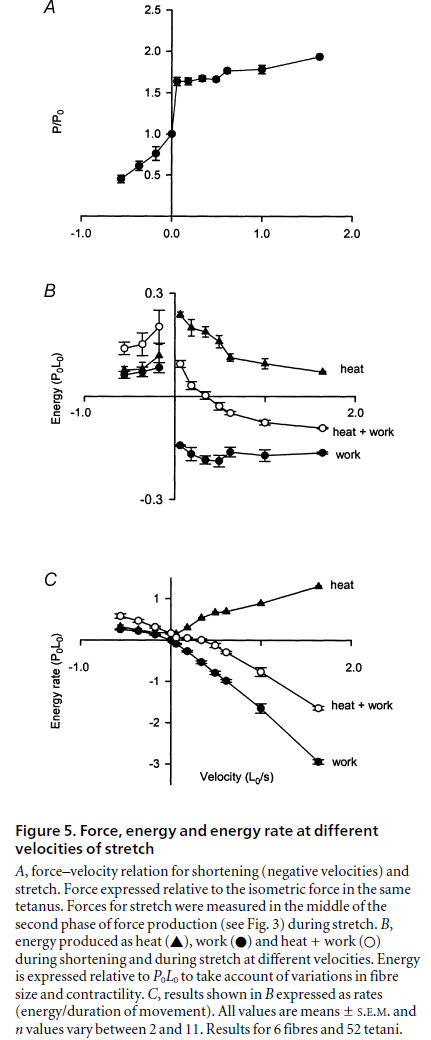When I walk downhill I lose potential energy. If I descend 100m in, say, 10 minutes I lose potential energy at a rate of about 114J/s (114W). Where does the energy go? Not into kinetic energy provided I don't run or fall, not into heat, for there is little friction to create such heat. My leg muscles appear to be acting as very efficient brakes, absorbing the potential energy but turning it into what? Chemical energy?
1 Answer
Yes, muscles do work as brakes; it's a process called eccentric contraction.
The energy balance of an eccentric contraction is a pretty difficult question. Some fairly recent research (Linari et al., 2003) found that a low velocities more energy is consumed (i.e. released as heat) even during eccentric contraction, while at high velocities, the muscle does store some energy from the eccentric motion. In frog muscles, at least.
So muscles do work a regenerative brake... in some conditions.
It's an active research topic where exactly this (non-heat) energy gets stored. Current models (in the previously cited paper) cannot account for all of what's measured experimentally; only 34% of it could be explained.

